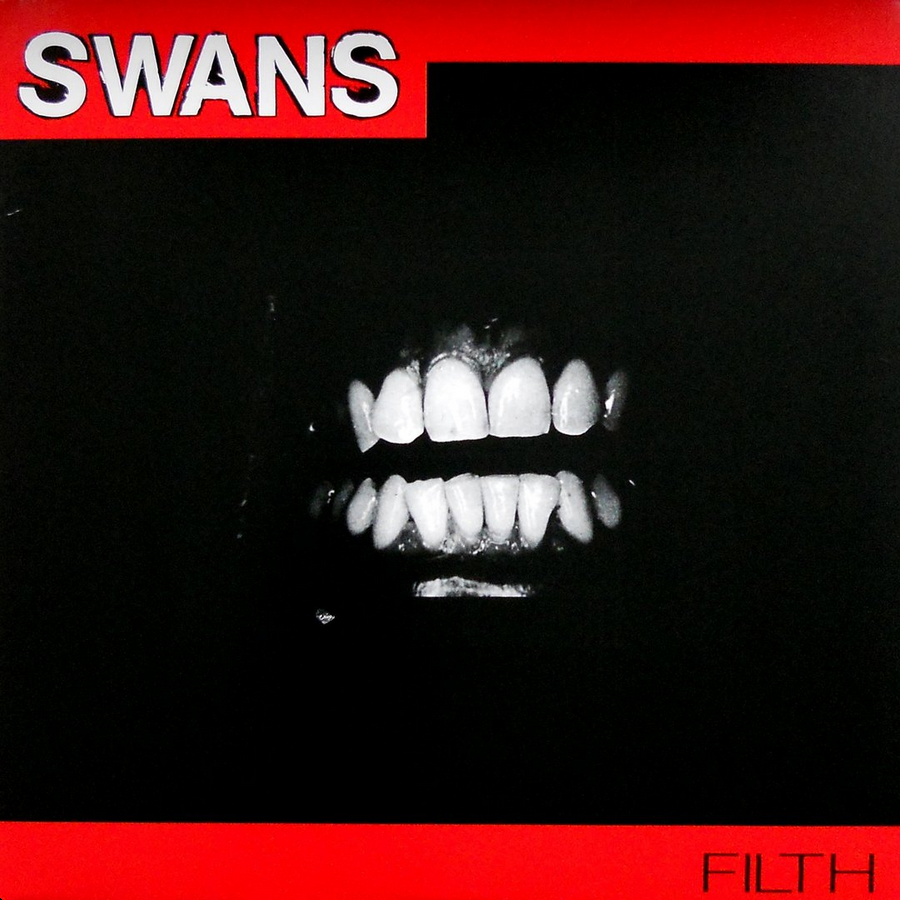8. SwansFilth

My respect for Swans is pretty well on record at this point. Hearing them perform on The Seer tour – a record that is among their best – was a pivotal reawakening for me about what live music can do to the body and the mind. Specifically, about the importance of a physicality in a live setting that can’t be underestimated in its potential to be affecting.
I think the first Swans record I bought was The Great Annihilator – a recommendation from some folks at a Brisbane record store. I’d heard some of the earlier records and a couple of live bootlegs too. The reason I selected Filth, rather than other records I love by Swans, is because it holds all the promise of possible futures. It’s raw, bludgeoning and relentless but hints at all the elements that would eventually make Swans so well recognised and important.
You can hear the earliest explorations of those trademarked explosive half-pattern grooves in ‘Power For Power’ which still occur in their work today, albeit in a more nuanced manner. You can hear Norman Westberg’s driving guitar carving out that distorted harmony. And front and centre is Michael Gira tearing through your speaker cones with this very physical, tactile voice. This is music of youth and frustration but, moreover, it’s music of forceful determination. I respect where Swans started and where they have arrived today. Gira is a powerful figure in American music and deservedly getting the attention he should.
The recent reissue of Filth offers a looking glass into a time and place that can never be again. Those live recordings, as rough as they are, summarise everything I loved about tape trading in the pre-internet age. The actual fidelity of the music was never the sole point of the experience. For me the live recording, as mediated by a format like tape, was about approaching the nature of the band in performance. Some of the live pieces on the Filth reissue have that ‘essentialness’ that is missing in the YouTube age, where documentation is merely that: someone filming and posting it. Somehow, in the absence of ease, and with the limitation/failures of technology, there was a pressure on the listener to embed themselves in what was captured on the bootleg, no matter how degraded it was… and to perhaps imagine something more than what was actually there.


